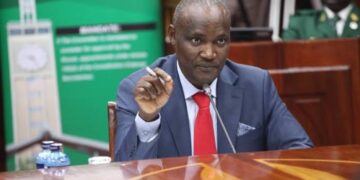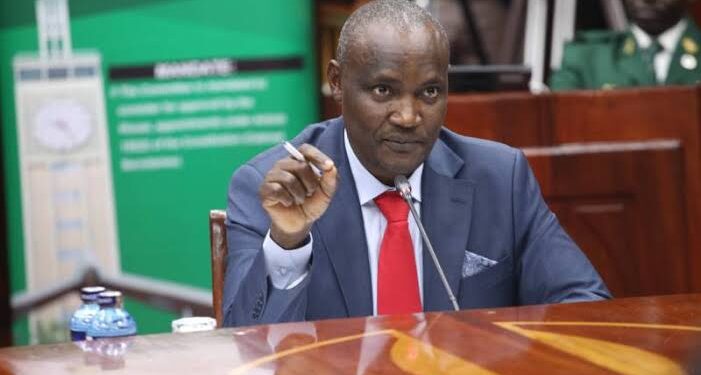By Ebi Kesiena
Kenya’s Auditor General has initiated a comprehensive audit of the country’s national debt, Finance Minister John Mbadi announced on Monday. The audit aims to determine the exact amounts owed to various creditors as concerns over the nation’s debt levels grow.
Kenya’s debt currently stands at 10.5 trillion shillings ($81.71 billion). The audit was a key demand from anti-tax hike protestors earlier this year, which led the government to scrap several planned tax increases in June.
The protests, sparked by rising living costs and fiscal concerns, resulted in the deaths of over 50 people and forced President William Ruto’s administration to re-evaluate its approach to managing public finances.
“The audit has already commenced,” Mbadi confirmed, although he did not provide specifics about the scope of the investigation or when the findings would be released. The Auditor General, an independent office established under the constitution and funded by the state, is responsible for conducting this review.
During the height of the unrest, President Ruto appointed a special committee to oversee the debt audit. However, key figures, including the head of the Law Society of Kenya, declined to serve, arguing that the Auditor General’s office was best suited for the task.
As Finance Minister, Mbadi has pledged to increase “debt accountability” to provide greater transparency and understanding of the country’s financial obligations. His commitment to clearer debt reporting was a central theme during his parliamentary vetting.
Kenya’s fiscal challenges have also led to a series of credit downgrades by major global rating agencies, further complicating the government’s financial standing.
Meanwhile, amid these developments, a team from the International Monetary Fund (IMF) is currently in the country for a fact-finding mission. Their findings will contribute to an upcoming IMF board meeting that could approve a $600 million disbursement to Kenya as part of the country’s ongoing economic programme.
The debt audit is seen as a critical step in rebuilding public trust and ensuring sustainable management of Kenya’s finances moving forward.




































